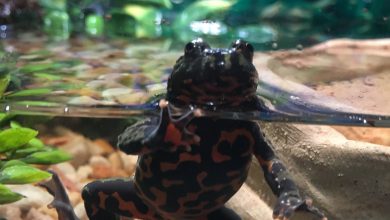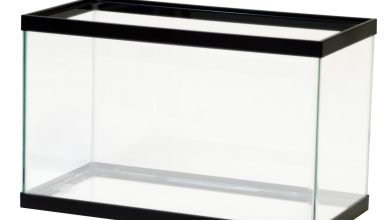How to Persuade Your Fish to Like You

Photo courtesy of Narcis Ciocan
Although mammals like dogs and cats are the pets most known for their sociable natures, anyone with an exotic pet knows that these animals do learn to recognize you and get excited about your arrival. Now, they may just be excited because they associate you with a reliable meal, but thatâs still some recognition for your role in their life.
What people may not realize is that tropical fish are no different. Many species of fish are able to recognize their ownerâs face. They may even get excited, swim faster, and jump in the water when they see you enter the room.
How do you get your own fish to notice you? Iâve got a few tipsâ¦
Let them see your face
So you may be thinking that the fish just sees a large animal come to its tank every day or so, and thatâs what is causing all the excitement. But evidence shows thatâs not the case. Pet fish actually can differentiate between different peopleâs faces, as shown in a study by the University of Oxford and Queensland.
That means your fish will know you, even if another person is also looking into their tank at the same time. So spend some time close enough to the tank that your fish can start to know what your face looks like.
Play with your fish
Fish donât just see you as a food source. They seem to associate with their owners. Many fish keepers report their fish getting excited when they enter a room, even though you canât interact with a fish in the same ways as a dog, cat, or even tortoise.
There are, however, a few ways you can initiate play time with fish:
- Put a ping pong ball in the aquarium for them to push around (only when youâre in the room).
- Draw on the tank with dry erase markers; fish will be interested in the new sight to investigate.
- Make paper cut-outs to hold up and watch the fish chase the shapes.
- Hold up a mirror to the tank (in moderation; this can make some fish aggressive and stressed).
Of course, what is entertaining can vary by individual fish.
Provide plenty of space
To get your fish to bond with you, they need to be in a healthy, stress-free environment. A big part of that is providing an aquarium with enough space and hides. If you’re unsure about which aquarium to get, it’s always better to go with a bigger tank. If you’re keeping multiple fish, you’ll need to account for the space needed for the largest species to maneuver comfortably.
The smallest aquarium for a school of fish is 15 gallons, but that’s only sufficient for tiny fish like neon tetras. Most tropical fish will need at least a 20 gallon tank, unless you’re keeping a single fish.
Here are some of the aquarium sizes we carry at The Tye-Dyed Iguana:
Unlike inside their tank, however, they donât need spaciousness in the room outside their tank. Itâs actually better to place your fish in a room where the people in your household often gather and talk. An active area encourages interactions from the fish. And the sound of human voices gets them accustomed to your sounds and behaviors so they know these things are normal, not stressful.
Talk to them
In addition to talking to other people around the aquarium, sitting and talking to the fish is a great way to encourage recognition and bonding. They will start to recognize your voice. Also, fish in a quiet, inactive room get bored easily. Just sitting and talking to them provides them with entertainment and makes their day more interesting.
If you spend a bit of time at these activities, your fish will likely begin to recognize you and start getting excited about your presence. Ask our team all your tropical fish questions on Facebook.



